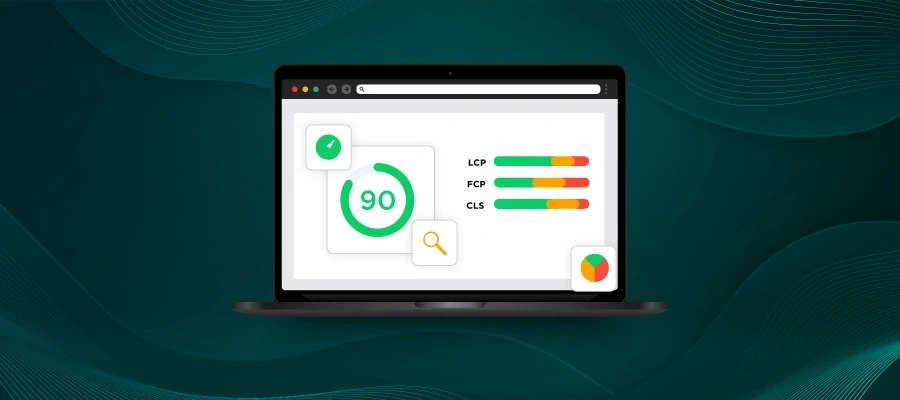As headless commerce gains popularity for its flexibility and scalability, it also introduces new security challenges for businesses. In a headless architecture, the distributed nature of workloads, coupled with API and CI/CD integrations, can create potential vulnerabilities that malicious actors may exploit. To ensure your headless commerce storefront remains secure, it is essential to implement robust security measures. In this blog, we will discuss ways to secure your headless commerce storefront, including the common security implications in headless developments, and how the Webscale Security stack can effectively protect your business from evolving and complex threats.
Thorough API Security Measures
APIs play a critical role in headless commerce, enabling communication between front-end applications and back-end services. However, they can also become potential points of entry for cybercriminals. Implement stringent API security measures, such as authentication and authorization mechanisms, to prevent unauthorized access to your data and resources. Regularly monitor API activity and enforce rate limiting to protect against potential denial-of-service (DoS) attacks.
Secure CI/CD Pipelines
Continuous Integration and Continuous Deployment (CI/CD) pipelines facilitate the rapid development and deployment of updates. However, if not adequately secured, they can introduce security risks into your headless commerce infrastructure. Ensure that your CI/CD pipelines follow industry best practices for security, including code reviews, vulnerability scanning, and controlled access to deployment environments. Additionally, use secure credentials and encryption methods to safeguard sensitive data during the development and deployment processes.
Distributed Workload Protection
The distributed nature of workloads in headless commerce can create challenges in monitoring and securing each component effectively. Employing a fully programmable cloud Web Application Firewall (WAF) can help protect your storefront from various exploits, such as SQL injection, cross-site scripting (XSS), and distributed denial-of-service (DDoS) attacks. A WAF analyzes incoming traffic and blocks suspicious requests, ensuring that malicious actors cannot exploit vulnerabilities in your distributed architecture.
Real-time Threat Detection and Response
Having a proactive approach to security is vital in today’s threat landscape. Your security solution should enable real-time threat detection and response capabilities that continuously monitor your headless storefront for potential threats. By employing advanced machine learning algorithms, it should identify and mitigate security incidents in real-time, safeguarding your headless commerce store from evolving and sophisticated attacks.
Content Security Policies (CSP)
Implementing Content Security Policies (CSP) adds an additional layer of security to your headless commerce storefront. CSP allows you to define which sources of content are allowed to interact with your website. By restricting the sources of scripts, stylesheets, and media, you can mitigate the risk of cross-site scripting (XSS) attacks and other client-side vulnerabilities.
Protecting Against Evolving Threats with Webscale Security
The Webscale Security Suite leverages analytics and automation to deliver proactive monitoring, detection, diagnosis and alerting to protect headless storefronts from complex threats. Deployed at the edge, and all the way to the backend, the Webscale Security Suite is the only protection your storefront will ever need. Its unique features provide businesses with enhanced protection and peace of mind:
Bot Management: Webscale Security includes a sophisticated bot management system that distinguishes between good bots and bad bots, ensuring that automated malicious activities are efficiently blocked. Legitimate bots are identified using pre-configured Address Sets, and served from the Dynamic Site Cache freeing up infrastructure
Fight ATO: Webscale’s real-time Traffic Viewer provides deep real-time visibility into login pages, tracking both successful and repeated failed logins. This helps detect brute force attacks and initiate rate limiting to shut down, or restrict access to login pages to avert an account takeover (ATO).
PCI DSS Compliance: For ecommerce businesses, the Webscale Security Suite helps ensure compliance with the Payment Card Industry Data Security Standard (PCI DSS), protecting customer payment data and maintaining trust.
Advanced DDoS Protection: DDoS attacks can disrupt your headless commerce operations. Webscale Security’s DDoS Shield provides advanced DDoS protection, ensuring that your storefront remains available during volumetric attacks.
Quick Mitigation: Webscale allows site security administrators to perform quick mitigation with Web Controls, a DIY policy and rules engine inside its Customer Portal, and advanced features like CSP Protection, DDoS Shield and App Shield.
Securing your headless commerce storefront is paramount to protect your business and your customers from potential cyber threats. As you embrace the flexibility and scalability of headless architecture, it is essential to implement robust security measures throughout your development and deployment processes. By implementing the Webscale Security stack, you can effectively protect your headless commerce store from evolving and complex threats including form jacking (Magecart), bots & scrapers, access breaches, DDoS attacks, and injections (SQL and XSS). Unlike traditional security solutions, Webscale does not leave remediation to the merchant or their developer. Webscale’s DevSecOps team works alongside the developer and admin teams to not only detect, but mitigate security threats.













